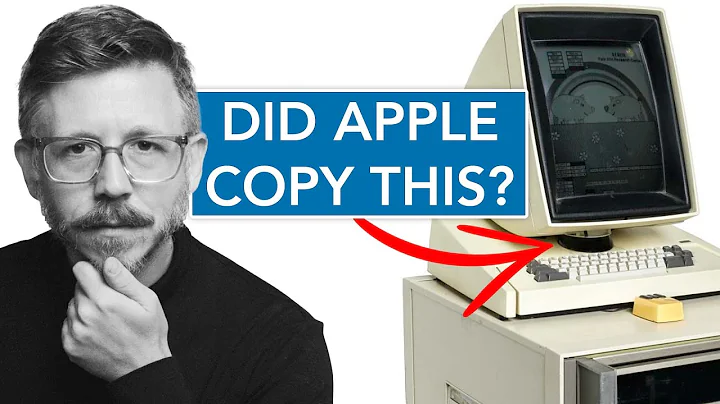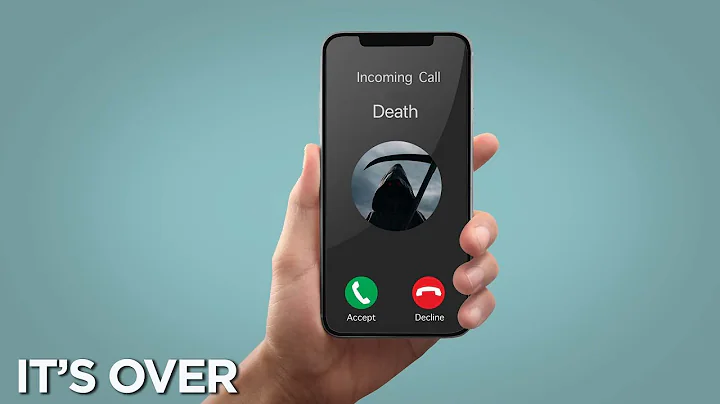Apple’s smartphone is about to turn 15 years old. Experts say technologies such as lidar and artificial intelligence will define its future. Everything Apple's does is an upgrade and evolution of existing technology. Apple did not create the first desktop computer , Xerox did; Apple did not create the first smart phone, IBM did; Apple did not create the first music player, Sony did. They didn't make the first laptop, smartwatch, and they weren't the first to make bandwidth connections. They are not making the first CPU or SoC. Even the iPad wasn't invented by Apple. But this does not prevent Apple from being the strongest smartphone leader at present

The future of the iPhone may depend on breakthroughs in these technologies
Lidar, laser detection and ranging is just an example of how Apple has developed in the past 15 years. When the first iPhone launched on June 29, 2007, it had only a 3.5-inch screen, considered puny by today's standards, and a 2-megapixel camera. Now, Apple's highest-end phones come with three rear cameras advanced enough to take pictures, sensors to help you navigate the world, and powerful chips with billions of transistors.
The iPhone has often been a catalyst for the technologies introduced within it, whether it was the digital assistant Siri, mobile payments or wireless charging, and helped drive the evolution of our mobile lifestyles. But in the future, the most important part of an iPhone may be everything around it. This is based on analysis looking at overall trends in the mobile industry and Apple's strategy.
In the short term, we'll likely see incremental improvements like higher-quality cameras and giant displays. But over the next decade, the iPhone may evolve into the hub for smart glasses and other devices. AirPods, Apple Watch, and CarPlay-enabled vehicles may be just the beginning. Core elements of the iPhone, such as the display and charging system, are also expected to be significantly improved.
The next quest for the smartphone is to figure out what it will connect to next, as the smartphone has not yet reached its potential, but is becoming more and more open as a standalone device.
iPhone may be the center of it all
There's a lot of speculation about what's next after smartphones. The biggest consensus seems to be smart glasses, , and companies like Meta, Snap, and Google are all developing their own high-tech glasses.
Apple is no exception. The iPhone maker may launch a mixed reality headset supporting augmented reality and virtual reality technology this year or next. A pair of AR-powered smart glasses could be available later this year.
So what does this have to do with the iPhone? Although Apple's headphones are expected to run as standalone devices, the apps and services they run are likely to have their origins in the iPhone.
Think about the Apple Watch. It doesn't require an iPhone to work, but a big part of its appeal involves its ability to sync closely with Apple phones. Many of the Apple Watch's notifications are also tied to accounts and apps set up on your iPhone.
Whether it's smart headphones, Apple Watch, AirPods or a HomeKit-enabled device, designers want the iPhone to stay front and center.

Mobile phones will become anchors, it will be more than just a technological tool to connect to a new world. Apple is gradually turning the iPhone into a viable alternative to money and keys, integrating it more closely into the non-digital aspects of our lives.
Apple has made a lot of progress on this front over the past year, launching new features like Digital ID for Apple Wallet and Tap to Pay, which turn iPhones into contactless payment terminals for merchants without the need for additional hardware. Apple also just announced Apple Pay Later, allowing Apple Pay users to split purchases into four equal installments over six weeks.
It's clear that Apple has a lot of momentum in financial services, and I think we'll see further progress
Better lidar, more advanced AI, better spatial awareness
Speculations on Apple's overall direction with the iPhone, Apple The development of AR/VR will be further advanced in the current iPhone.
Lidar will likely continue to play an important role as the company pushes deeper into augmented reality. Apple added lidar to iPhone 12 Pro in 2020 to improve the performance of AR apps, enable new camera tricks and facilitate accessibility features like the aforementioned person detection. This technology measures distance by determining how long it takes for light to reflect and bounce off an object.
However, the iPhone's current lidar sensor may not be powerful enough to realize Apple's augmented reality ambitions.
Specifically, what needs to happen is that the mapping of the real world needs to be more accurate, with companies conducting research on topics such as augmented reality, self-driving cars, and virtual reality . Until then, AR won't really happen.

Lidar improves the iPhone's depth-sensing skills, but it's still up to the phone's processor to make sense of all that data. Apple has turned to artificial intelligence - one of Silicon Valley's favorite buzzwords in recent years - to give iPhones and other products more context about users and their surroundings.
You can look at your Apple Watch to see this method in action. Apple's smartwatch uses artificial intelligence and data collected from its sensors to perform tasks like tracking sleep and noting when to wash your hands.
A hypothetical example of AI improvements showing up in an upcoming iPhone. Imagine a future where Apple's smartphones could observe a person's habits to learn whether the phone's primary user or family member is using the device.
The way you use your phone, the angle you tilt your smartphone at... do you press it with a specific pressure, or just tap it with your fingernail or something like that? All of these are different types of behavior that look different to the user.
But advances in artificial intelligence and technologies like lidar and ultra-wideband have given the iPhone more spatial awareness.
Display and charging technology could see major changes
Perhaps one of the biggest questions surrounding Apple's future smartphone plans is whether the company will make a foldable iPhone. Samsung is Apple's biggest competitor in the mobile field and has launched several generations of mobile phones with flexible designs. Motorola, Huawei and Microsoft have all followed suit, and there are rumors that Google is developing a bendable Pixel. According to International Data Corporation, foldable smartphone shipments are expected to grow 264.3% in 2021 compared to 2020.
But I'm skeptical Apple will take a similar approach. While the tech giant has filed patents for mobile devices with flexible displays, those filings aren't always indicative of Apple's plans. Sales of foldable phones have been growing, but shipments still pale in comparison to regular smartphones. (Foldable phone shipments in 2021 will be 7.1 million units, compared with 362.4 million units in the fourth quarter of last year). There's also the question of whether foldable devices can bring anything truly new or meaningful to the smartphone experience.
There are also challenges in creating a true foldable glass screen. Samsung's Galaxy Z Flip has a glass screen, but that glass is also combined with "special materials" to achieve consistent hardness.
What’s missing is how Apple would actually do this.

The iPhone’s charging experience may also need an upgrade. Between USB-C, Lightning , and MagSafe , it's no exaggeration to say that Apple's charging options are complicated. Pressure from the EU and the United States may mean that the iPhone's future may be towards USB-C.
But more drastic changes may also be brewing.Rumors about a completely portless iPhone have been circulating for years,
If any vendor is going to launch a completely portless system, it's probably Apple, which decided to remove the iPhone's headphone jack in 2016.
Wireless charging has also been a focus for Apple in recent years, further bolstering portless iPhone cases. Apple has a relatively new MagSafe charger, and many CarPlay-enabled vehicles also support wireless connectivity. Apple has also applied for patents for wireless charging systems that will be built directly into the MacBook, allowing Apple's laptops to charge iPhones, Apple Watches, and iPads. iPad Pro's Smart Connector also provides a quick and easy way to connect accessories to Apple's tablets without the need for ports.
The number of systems that are actually 100% necessary to have a cable is decreasing

The iPhone's front-facing camera has room for improvement, and Apple will continue to use display size and camera quality to differentiate regular iPhones from its Pro iPhones.
Without an announcement from Apple, it's impossible to know what's next for the iPhone. One thing seems certain: Apple is laying the groundwork for the iPhone future today. Current iPhone features, like Apple's lidar-powered accessibility tools, offer clues about future developments.
Everything we can see being done in the past few years is what is about to happen in the future. A lot of what they're doing is preparing the system for the next few years when they want to integrate the iPhone into the system.
If you look at the history of mobile phones, screens have gotten larger over time. When the iPhone came out in 2008, many phones already had half the screen size. They also have physical keyboards. Physical keyboards are better suited for tactile feedback than virtual keyboards. As jobs said, you can't make it disappear when you don't need it. Apple is like a chef. They don’t invent food, they don’t grow food. They take all the food and mix it into a great gift. But all their technology is made by others, and Apple makes it the best.





















